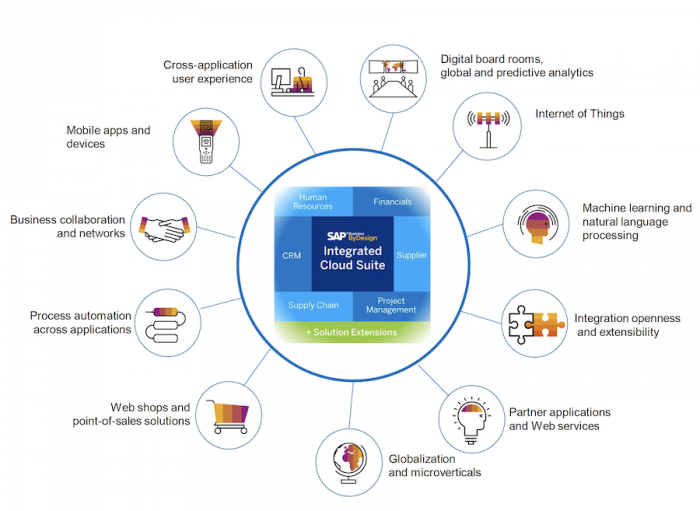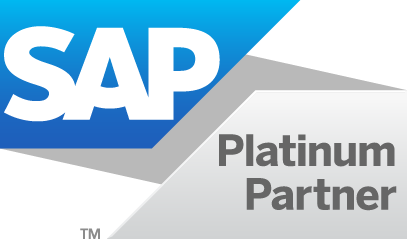Enterprise Resource Planning (ERP) is an integrated business management platform that gives you total control over the day-to-day operations of your business. Along with that, it provides you with a comprehensive understanding of the problems that may occur with workflow management, inventory, warehousing, vendor management, finances, accounting, and any other aspect of your business.
Think about a scenario…
You have implemented an on-premise ERP system. All your business managers need to access your company’s ERP system at the same time but all of this data is kept on a single server. Using an on-premise ERP system hosted on a single server can cause power issues and end-user problems. If so, adding more servers that store the same types of data will help you control the problem to some extent. It’s an expensive solution, though!
The emergence of cloud technology has had a significant impact on the ERP system. As a result, you now have the choice to use a cloud ERP, which provides better accessibility and scalability at lower costs.
What is Cloud ERP?
Cloud ERP is offered primarily as Software as a Service or SaaS. Your service provider enters into a service level agreement with you and implements the application. Well, you pay for the service monthly.
Cloud technology allows you to store data in data centres that only your company users can access. Moreover, the modern cloud ERP system has benefits beyond just delivery and accessibility.
Besides that, a true cloud ERP should help you achieve excellent connectivity. For example, you could set up a connection between your departments in your organization with internal servers and all of your devices to facilitate effective data transfer. In order to understand your business operations and daily financials, you must be sure that you have access to the most recent information about all the departments in your organization.

The 10 Benefits of Cloud ERP
1. Cost-effective
The cloud ERP solution is cost-effective and available at a much lower cost than the on-premise option. The main justification for this is that, unlike an on-premise ERP system, you won’t need to make an extensive investment.
Moreover, you are not required to make any significant hardware changes. You don’t have to maintain a trained team to ensure that system runs smoothly. The service provider also does upgrades and maintenance of the system. Thus, all you have to do is pay the monthly fees for the ERP solution.
2. Easy implementation
You can implement a cloud ERP solution much faster than an on-premise ERP. The management of the data and software centre, ramping up the entire system and getting your staff ready to use the system can be done quickly with an intuitive user interface.
3. Always accessible
Cloud ERP solutions let you access your business anytime, and from anywhere. You can monitor your company from anywhere in the world with a cloud ERP solution. You can quickly log in while on vacation to see what’s going on at work or get work done outside of business hours too.
4. Automation
It turns out that several independent legacy applications can be standardised and integrated into a single platform when you evaluate your workflow management. You can automate a number of business processes with cloud ERP. With automated business processes, you can more easily take charge of your day-to-day business operations and boost productivity.
5. Adding new functionalities
The latest advances in cloud ERP make it easier for vendors to offer new and improved functionalities through software upgrades. If you choose a cloud-based system, you can make these upgrades without interfering with your company’s daily operations. Moreover, the data remain unchanged, and you can carry out analytics without any issues.
In addition, the new functionalities simplify workflow management and integrate more business functions on a single platform. With cloud ERP if you find that the latest technology offers you an opportunity to upgrade your system, you can have your service provider implement a similar upgrade in your ERP system quickly.
6. Data management and analytics
With cloud ERP, data management and analytics have become more accessible. It can be done quickly if you want to extract historical data and compare it with the latest real-time data because cloud ERP offers easy access when looking for data in complex data systems.
Furthermore, the integrated data sets are a unique feature of cloud ERP, not available in legacy ERP systems. The analytics offered by these datasets can help predict future sales, analyze customer behaviour, and change marketing strategies.
7. Mobility
Cloud ERP enables employees to access, update and input new data at the point of work using mobile devices such as phones or tablets. The ease of mobility makes it easier to make business decisions on the go.
8. Intelligent technologies
You can benefit from Artificial Intelligence, Machine learning, and IoT to give you all the data and information you need to improve your business operations. As these technologies gain skills and intelligence, they can take on more and more of the repetitive tasks that currently need a person to review or require the analysis of massive amounts of data.
9. Scalability
For SMEs, scalability is an essential factor. You can upgrade your ERP system as your business grows. Moreover, you can add more tools and data storage capacity without increasing your operational expenses significantly. Thus, if you evaluate carefully, you will find that a cloud ERP solution can prove to be a better solution than an on-premise one in the long run.
10. Better security
A top-notch security system is something you can count on. The information you share will always be secure and continuously upgraded by experts. Unfortunately, the legacy system often works on outdated security systems.
Types of Cloud ERP
Public, private, and hybrid clouds are the main categories of cloud-based ERP that you can take into account. Depending on the deployment, you must choose the type of cloud ERP to use.
For instance, choosing a private or proprietary cloud ERP is similar to choosing a conventional on-premise ERP solution. Here, the data is stored on the servers managed by your company. The hosting of a private cloud is also possible in a single-tenant environment in a third party’s data centre.
If you opt for a Public cloud, you are choosing SaaS, and the service you receive will be based on a subscription. The fact that a public cloud rarely experiences a data breach is the biggest benefit.
The hybrid cloud ERP has two-tier functionality. In this ERP, your company’s servers are used for corporate functions, while the cloud ERP is utilized for other business operations and units. It combines on-premise and cloud-based ERP. You should select a specific type of ERP solution based on the needs of your business.
Public Cloud vs Private Cloud vs Hybrid Cloud

What is SAP Cloud ERP?
SAP’s portfolio of cloud ERP combines industry-leading technology designed to fit your company’s requirements irrespective of the firm’s size. The technology-driven ERP tools are designed to help you evaluate all your business transactions, and operations and run analytics to improve your business operations. The most important benefit of SAP ERP is that it is easy to use and customized to suit your company’s requirements.
SAP Cloud ERP solutions for Your Business Size
1. Small and medium-sized enterprises (SMEs)
The SAP Business one has been a long-time favourite of micro and small businesses. You can integrate everything from financials, sales, service, inventory, and purchasing to HR on a single platform.

SAP Business ByDesign is a true cloud ERP that can support small and medium-sized businesses. It has several modules along with the standard financials, sales, CRM, and HCM. It also offers analytics and guidelines to improve efficiency.

Also Read: SAP Business One VS SAP Business ByDesign
2. Large Businesses
SAP S/4HANA Cloud is a single cloud-based business management suite that includes essential modules, content and functionality for specific industries and for large organizations.
The solution helps to standardize enterprise reporting. Besides that, you can have a unified software for finance and controlling, sales, materials management, process orchestration, and master data and landscape management, providing real-time comparative analytics and monitoring.
The built-in machine learning of the system offers real-time data analysis that allows you to make better business decisions. In addition, the SAP S/4HANA Cloud uses embedded analytics to predict the outcome of your business decisions. For example, predictive analytics is necessary for CRM and to develop of a marketing strategy. Similarly, you can use it to develop inventory management apps and help you evaluate your company’s overall working and functioning.

Also Read: What is RISE with SAP?
In conclusion, in order to boost productivity and enhance business operations, you must evaluate your company’s requirements and find the right ERP solution that meets your needs, provides scalability and is a reasonable option.














